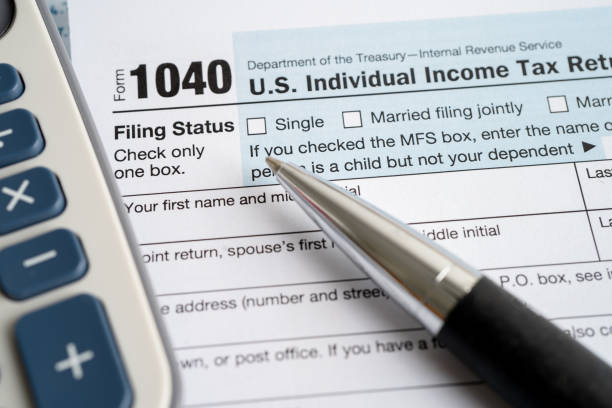สล็อตเว็บใหญ่ ยอดนิยมจะขอแนะนำ เส้นทางการปั่นสล็อตสนุกเหนือกว่าเว็บไหนๆ ด้วยสล็อตเว็บใหญ่ pgคุณสามารถเข้าเล่นได้สะดวกและง่ายต่อการใช้งาน ผ่านระบบมือถือได้ทุกระบบ มีการรองรับระบบปฏิบัติการทั้ง iOS และ Android หมดความกังวลเรื่องดาวน์โหลดหรือติดตั้ง สล็อตเว็บใหญ่ แจกเครดิตฟรี สามารถที่จะเริ่มเล่นได้ทันทีที่สมัครสมาชิกเสร็จเรียบร้อย
ไม่ว่าจะอยู่ที่ไหน สล็อตเว็บใหญ่ รวมทุกค่าย หรือกำลังจะทำอะไร ก็สามารถที่จะหยิบมือถือขึ้นมาเล่นได้อย่างง่ายๆ อลังการด้วยการออกแบบเว็บไซต์ที่สวยงาม สล็อตเว็บใหญ่ pg เว็บ ตรง มีรูปแบบเกมรองรับที่เปิดให้เข้าใช้บริการมากมาย มีระบบที่เสถียรและดีที่สุดที่เคยมีมา ตอบโจทย์ทุกการเล่นสล็อตเว็บใหญ่ ออนไลน์แก่สายปั่นสล็อตทุกคน.
Perhaps you’ve had concerns about the confidentiality of your conversations with your tax preparer, lawyer, CPA, or enrolled agent. Ethics requirements for each of these professionals are outlined in statute at the federal or state level.
It’s true that it would be unethical for them to share any information about you or your tax return with anyone else without your express consent. However, there are circumstances in which they could legally disclose your information. Subpoenas and the requirement to provide testimony or evidence in connection with a specific taxpayer fall under this category.
Keep in mind that tax preparation services that are not licensed by the federal or state governments are not subject to the same rigorous requirements. Furthermore, there are circumstances in which they cannot assist you in the same way that a qualified expert could by helping you maintain the privacy of your documents.
They May Share Your Information with Select Third Parties.
Your tax preparer must get your permission in writing before disclosing any of your information. If they do, they risk a $250 fine or a $1,000 fine. And up to a year in prison for inadvertently revealing their sensitive tax information. Disclosure to specific individuals, however, is not subject to these penalties.
Your tax preparer does not need your permission to give the IRS or an employee of the IRS any information they request. Without fear of legal repercussions, they may share any details they choose about your tax return with the IRS.
You should know that there are a few other ways your tax preparer can share information from your return without your permission. Your tax preparer has the right to disclose any information contained in your return to any federal, state or municipal court that requests it. You don’t need to sign anything for your tax preparer to pass up your personal information in response to a grand jury subpoena. There may be a state or federal entity that governs the licensure of your tax return preparer. Your tax preparer does not need your formal permission to release information from your tax return to this state or federal entity.
In the event of a criminal inquiry or report. Your tax preparer may reveal information from your tax return to the appropriate authorities without your express permission. It even includes cases of mistaken identity or false reports of criminal activity.
The Privileges Afforded by The Attorney-Client Privilege in Federal Tax Law
Working with federal tax professionals who are admitted to practice before the Internal Revenue Service affords you important legal protections. This category excludes tax return preparers and includes CPAs and enrolled agents. This simply means that any and all communications with a CPA or EA are privileged in the same way that communications with an attorney are.
This immunity applies solely to civil tax actions before the IRS or a tax court. And does not apply to criminal investigations. This protection would not apply if you were the subject of a criminal investigation. Remember, too, that the IRS is very likely to deny you this right if you haven’t already submitted your tax return.
If you are a taxpayer who does not file tax returns. You may benefit more from consulting an attorney than a certified public accountant or enrolled agent. Working with the IRS without submitting a tax return is easier if you have a tax attorney on your side.
In accordance with The Attorney-Client Privilege, You Are Entitled To The Following:
If you share information with your lawyer in confidence. They cannot use that information against you or disclose it to anyone else. However, the attorney-client privilege requires that this communication be regarded carefully. Information given to an attorney in the course of professional representation must be held in the strictest confidence and may not be shared with anyone else without your express permission. You are giving up your right to the confidentiality of your attorney-client relationship by making this information public.
- One possible waiver of the attorney-client privilege occurs when the client uses an attorney just for tax return preparation. And does not consult the attorney for any other counsel.
- If you share it with anybody other than your lawyer.
- If you reveal secret information at a party or other public event.
- And if you tell an attorney something without first consulting with them for legal guidance. You would not have been protected by the attorney-client privilege. If you divulged confidential material for the sole purpose of seeking guidance on a different matter.
Keep in mind that the law dictates how your data must be handled. Information about you will not be made public in response to demands from third parties under most circumstances.

